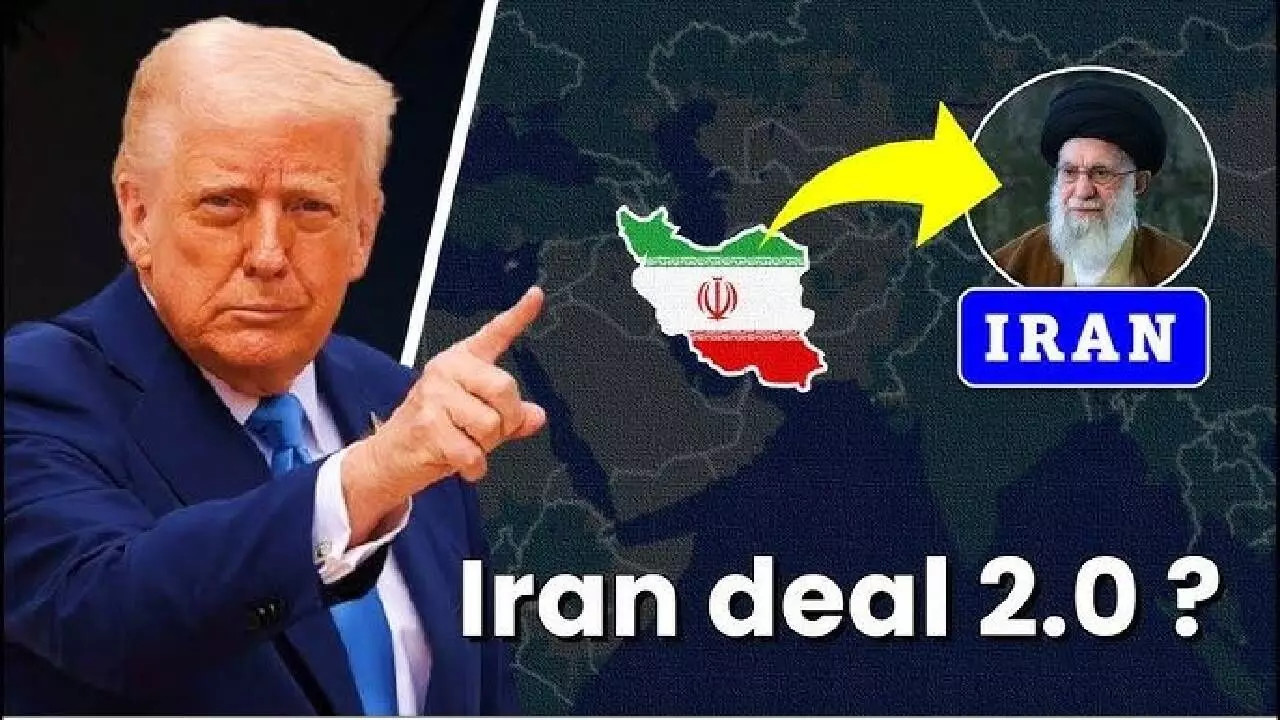‘Fall in line or be in great danger’, warns Trump ahead of N-talks with Iran
Nuclear negotiations between the two nations have been marked by a lack of trust
image for illustrative purpose

The announcement of planned talks between the US and Iran in Oman signifies a crucial development – especially given the history of distrust and animosity that has characterised their interactions.
There remains a degree of confusion as to whether the negotiations over Iran’s development of a nuclear capacity will be direct or indirect. The US has said that its Middle East envoy, Steve Witkoff, will meet Iran’s foreign minister, Abbas Araghchi. Donald Trump has publicly stated that Iran will be in “great danger” if the negotiations fail.
Iran, meanwhile, has said that talks will be conducted through an intermediary.
Araghchi commented: “It is as much an opportunity as it is a test. The ball is in America’s court.”
This seeming clash in messaging before the talks have even begun is not the greatest omen for their success, even with the threat of US or Israeli military action hovering over Iran. Representatives from Iran, China and Russia are reported to have met in Moscow on April 8.
China’s foreign ministry released a statement reminding the world that it was the US “which unilaterally withdrew from the JCPOA [the 2015 nuclear deal or joint comprehensive plan of action] and caused the current situation”.
It stressed the need for Washington to “show political sincerity, act in the spirit of mutual respect, engage in dialogue and consultation, and stop the threat of force and maximum pressure”.
This followed messaging from Washington, which focused on the possibility of force and maximum pressure.
Speaking to the media after meeting Israeli Prime Minister Benjamin Netanyahu, Trump struck a very aggressive note, saying: “Iran cannot have a nuclear weapon and if the talks aren’t successful, I actually think it will be a very bad day for Iran if that’s the case.”
The US president’s much discussed transactional approach to diplomacy – as represented at the talks by Witkoff, a former real-estate developer – is likely be pivotal to how negotiations proceed. Trump’s geopolitical ambitions in the Middle East focus on expanding the Abraham accords. These agreements focused on normalising relations between Israel and various Arab countries – including UAE, Bahrain, Morocco and Sudan.
Signing of the accords in 2020 was seen as a key foreign policy achievement of Trump’s first administration, particularly in terms of America’s desire to counter Iran in the region.
The US is now actively working to bring Saudi Arabia into the fold, which implies that Riyadh’s participation would mark a transformative shift in regional geopolitics. Additionally, Trump aims to leverage trade agreements and major investment initiatives to create economic dependencies that encourage diplomatic normalisation.
Iran, meanwhile, faces severe economic difficulties. The country’s economy is in a state of crisis, with high inflation, a depreciating currency and widespread poverty. These conditions have been worsened by international sanctions and domestic policy failures. As a result, Iran is in dire need of economic concessions, which could be a significant point of leverage for the US.
Tehran’s geopolitical clout has weakened considerably over the past 18 months. Military setbacks in 2024 – including the loss of key allies and leaders in groups such as Hamas and Hezbollah – have diminished its ability to project power in its region.
This weakened position will affect Iran’s negotiating stance. It could make it more likely that Iran’s negotiators might seek economic relief and diplomatic solutions rather than pursuing aggressive policies. But pressure from hardliners within Iran could push the country towards a more radical approach if concessions are not forthcoming.
Rocky road ahead:
A major issue affecting the talks is the low level of trust between the two parties. The US’s involvement in the Gaza conflict – including Trump’s controversial proposal to clear Gaza of Palestinians to make way for possible redevelopment – has further strained relations. So has the recent US campaign against the Tehran-backed Houthi rebels in Yemen.
Further threats of this kind are likely to be seen by Iran as aggressive and coercive – and Trump’s latest rhetoric would not help. This will inevitably undermine the prospects for trust between the parties.
(The writer is a Professor of International Relations and Middle East Politics, Loughborough University)

